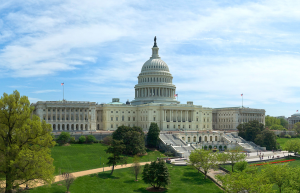
Senate leadership is eager to bring the House-passed Bipartisan Budget Act of 2019 to the floor this week before members leave for recess Aug. 2. But with multiple GOP members still reportedly undecided and eight Democrats out of town this week for presidential debates, it is still unclear whether the votes are there to pass the two-year spending bill to avoid a potential continuing resolution or a return to sequestration. The House last Thursday passed H.R. 3877, which would provide…

 By
By 









